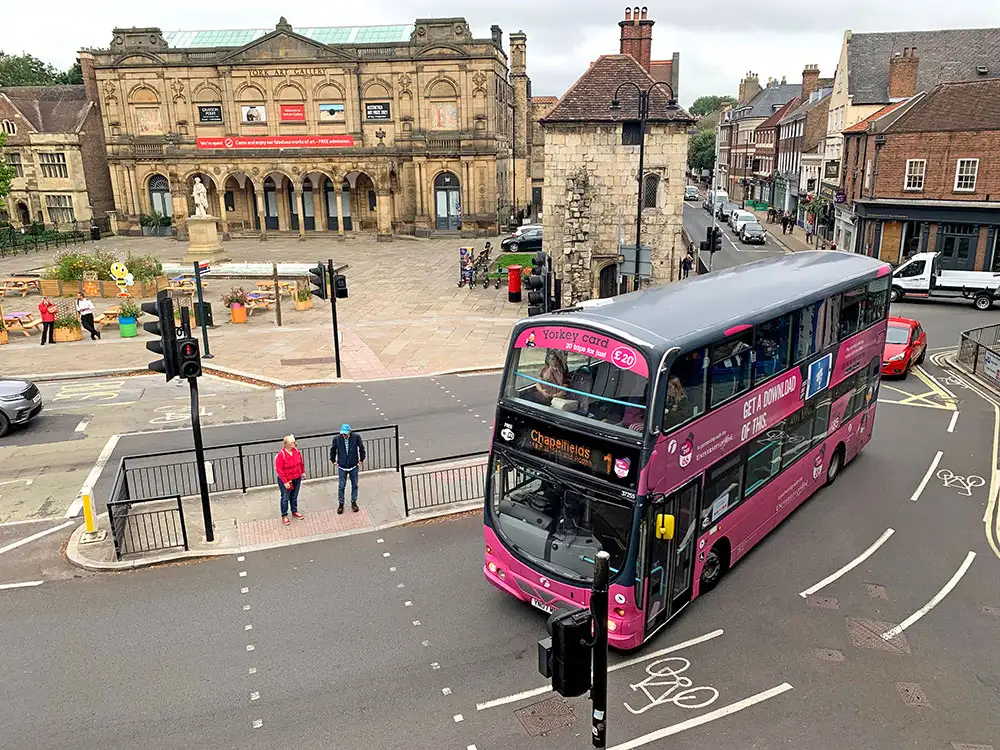It could take up to 30 years to see York’s new transport plan in action.
The York local transport plan proposes to make a series of interventions to achieve a reduction of 71 per cent in York’s transport carbon emissions.
That is York’s climate change strategy requires to reach net zero by 2030.
Measures include the following:
- Develop a city-wide Movement Plan as a statement of intent for discussion with the new elected regional mayor, to mitigate the carbon impact of upgrading and dualling the A1237, reducing congestion and enabling active travel.
- Extend the Clean Air Zone to include freight and taxis, covering York Central and responding to the need for freight deliveries, considering additional action such as taxi licensing.
- Become a fully electrified bus city, and refresh the EV strategy including e-bikes & e-scooters.
- Introduce traffic calming and anti-idling patrols around schools to reduce traffic and remove harmful pollutants.
- Review the business model for transport enforcement including local regulations, such as yellow-hatched boxes and illegal parking and anti-idling enforcement to improve air quality.
However, Julian Ridge, the City of York Council transport strategy lead, said: “What we’re doing here is we’re committing to consult on things.
“We’re not committing to enact these policies, we’re committing to a consultation, and I think that’s a crucial difference.
“Just because something is here [on the local transport plan] doesn’t necessarily mean that it’s something the council will do.”
Consult very widely
Mr Ridge also said that transport in York is changing, as plans for Haxby station were announced by Prime Minister Rishi Sunak and the York station gateway project is underway.
“Transport in York, I think, is at a bit of an inflection point,” he said.
“We have to decide what we do next.
“Policies and schemes that we’re developing now in this local transport plan might be in use in 20 or 30 years time.
“So it’s an important point to consult very widely to get this right.”
Andrew Morrison, chief executive of York Civic Trust, endorsed the plans, saying: “We need to tackle climate change, reduce air pollution, address the scourge of casualties on our roads, and protect York’s unique heritage.
“At the same time, we need a transport system which provides access for all, supports York’s economy, and ensures that all communities in York are safe, healthy and lively places in which to live and work.
“These are all objectives which we advocated in our transport strategy for York, published last year.”
